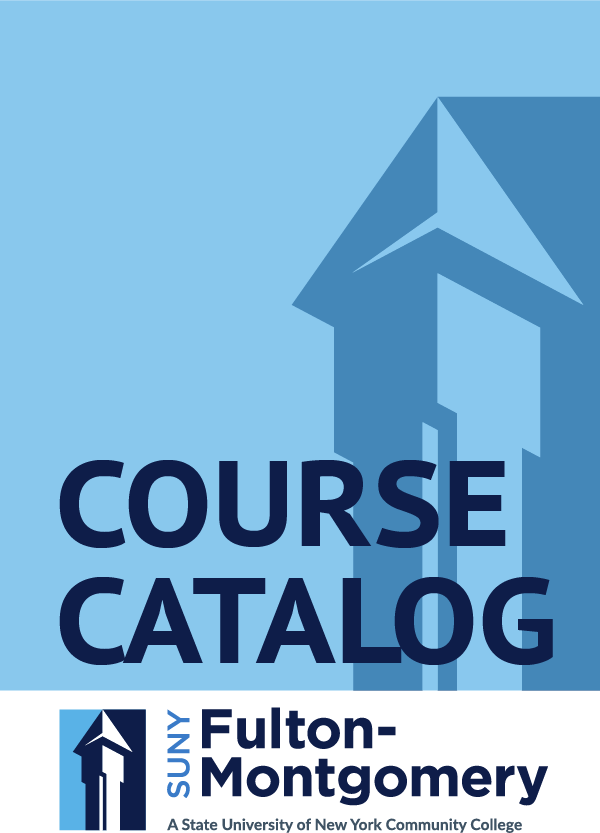Why study Criminal Justice AAS at FMCC
This program is designed to prepare students for careers with federal, state, county, and local enforcement organizations. The courses are concerned with fulfilling the educational needs of students and aiding them in becoming efficient and knowledgeable criminal justice personnel. The program is open, as well, to those who are currently employed in law enforcement.
Request info for this program
Career Pathways
Our region boasts a wide variety of career opportunities in the criminal justice field. The positions presented are the most common career pathways FMCC graduates have taken and are just a sample of the many career possibilities. A bachelorette or higher degree may increase chances of employment and career advancement.
The labor market and employer information are specifically presented for the Amsterdam, Gloversville, Capital District, and the Mohawk Valley regions. Salary information is based on estimates within the Capital District.
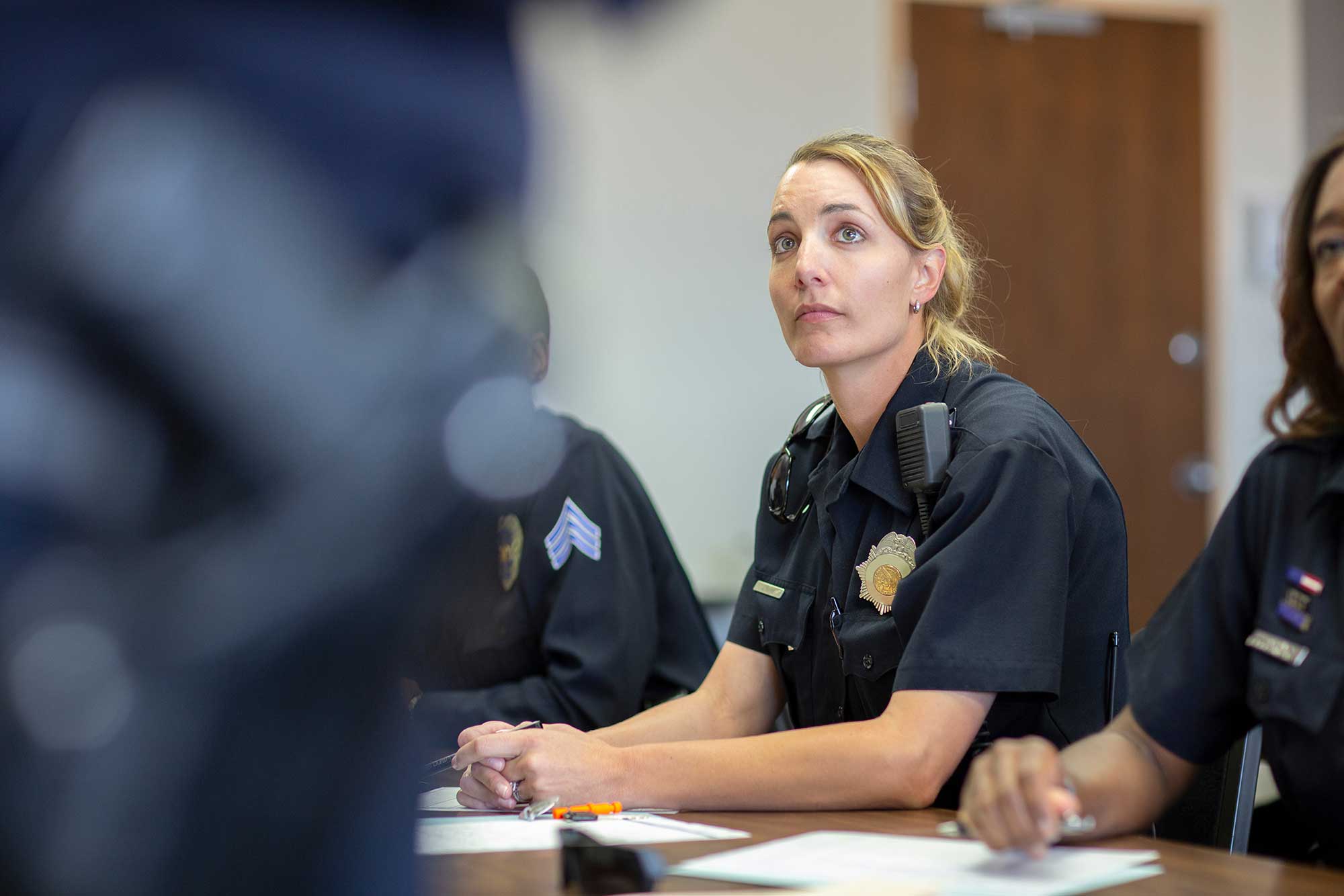
MEDIAN SALARY
$66,019*
SALARY RANGE $47,727, $100,337
Maintain order and protect life and property by enforcing local, tribal, state, or federal laws and ordinances. Perform a combination of the following duties: patrol a specific area; direct traffic; issue traffic summonses; investigate accidents; apprehend and arrest suspects, or serve legal processes of courts. (bls.gov)
Over 2,500 expected jobs in the region in the next 10 years.

MEDIAN SALARY
$61,610*
SALARY RANGE $37,939 - $80,205
Bailiffs are law enforcement officers who maintain safety and order in courtrooms. Their duties, which vary by court, include enforcing courtroom rules, assisting judges, guarding juries, delivering court documents, and providing general security for courthouses. (bls.gov)
Over 200 expected jobs in the region in the next 10 years.

MEDIAN SALARY
$59,864*
SALARY RANGE $46,966, $60,923
Guard inmates in penal or rehabilitative institutions in accordance with established regulations and procedures. May guard prisoners in transit between jail, courtroom, prison, or other point. Includes deputy sheriffs and police who spend the majority of their time guarding prisoners in correctional institutions. (bls.gov)
Over 2,000 expected jobs in the region in the next 10 years.
Salary information presented are estimates and can be different for each individual based on education, experience, and the specific employer.
Labor market data is based on 2021 estimates derived from Lightcast (Career Coach | Lightcast)
Some of Our Regional Employers
Our commitment to your career path goes beyond the classroom with continued expansion of hands-on internships, job shadowing, and job placement opportunities with over 50 regional business and organization exclusive partners, a career network of over 200 regional companies and organizations; plus Annual Job Fairs every Spring semester.


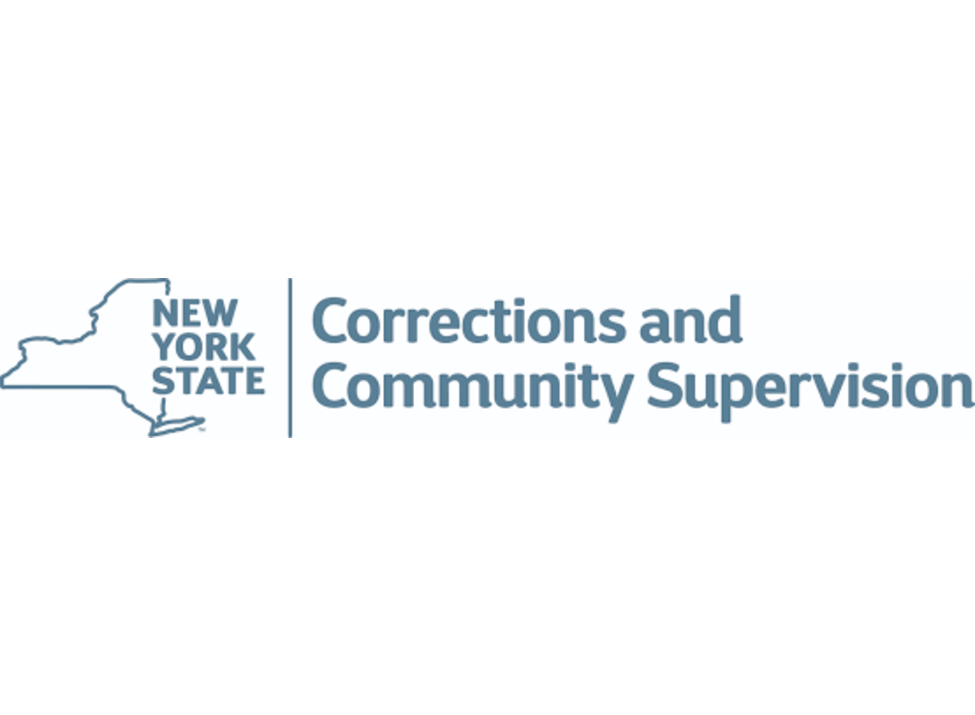

61 Credits
#1 CRIMINAL JUSTICE PROGRAM
4,000+ JOBS
Program Insight
Graduates of the Criminal Justice program have gone on to impressive careers within the criminal justice system at the local, county, state, and federal levels. Many criminal justice agencies require applicants to meet qualifying entrance requirements in addition to education including health, physical conditions, and character.
Learning Outcomes
Students will be able to:
-
Explain the etiology and measurement of crime.
-
Analyze the policy issues in criminal justice.
-
Explain the purpose and role of various agencies in the areas of government, policing, adjudications, and corrections.
-
Explain the context of agencies within the criminal justice system.
-
Identify and explain the problems and issues in applied fieldwork.
Program Features
Hands-on Experience
Students have the opportunity to intern at a local criminal justice agency in law enforcement, corrections, or judicial court system.
Experienced Faculty
Learn from dedicated professors who have years of experience working in various areas of the criminal justice system.
Law Enforcement Guest Lecturers
Learn directly from law enforcement professionals from federal, state, county and local agencies.
Criminal Justice Club
This club allows students to hear from speakers and participate in field trips to learn about the diversity of the criminal justice field and more!

Internship Opportunities
Students have opportunities for an internship in their second year of the Criminal Justice program. Many students have subsequently been hired by local and regional criminal justice agencies.
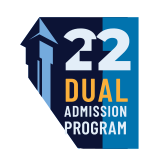
Dual Admissions Opportunities
Although primarily a direct to work program, you can take advantage of dual admissions opportunities and be accepted into bachelorette criminal justice programs at either Excelsior University, SUNY Oswego or Niagara University while attending the Criminal Justice program at SUNY FMCC.
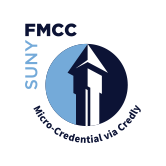
Microcredentials
This program may allow students to earn digital badges which verifies the achievement of in-demand skills and competencies. SUNY FMCC continues to expand opportunities for students to become more marketable to employers.
Course Highlights
Course Catalog
SUNY FMCC offers its catalog online in a downloadable PDF document that makes information on programs, courses and policies most current and accessible, while reducing impact on the environment. Additional information is available on the College’s website and portal. To read and search the FMCC Catalog, you’ll need Adobe Reader version 7.0 or later.
2025-2026 FMCC CATALOGProgram Course Layout
This program combines criminal justice coursework with a hands-on internship experience to prepare you for a career in the criminal justice system. Students have flexibility in choosing criminal justice electives depending on their interest and career goals. Here are some of the courses you will take.
A survey of the history and philosophy of criminal law, the scope, purpose, definition and classification of modern criminal law, offenses against the person, property offenses, and a discussion of the relationship between the Constitutional rights of the individual and the protection of society.
An analysis of the nature and purpose of criminal investigation. Discussion includes various methods of investigation, the interview, the interrogation of witnesses and suspects, collection and preservation of evidence, the use of informants, techniques of surveillance and special investigation methods used in police science laboratories, ballistics, documents, serology, photography, and related forensic services.
This capstone course surveys the current and anticipated opportunities for a career in the Criminal Justice field, through a variety of methods that may include on-site experiences, field surveys, professional publications, speakers, and symposiums. Through documented self-assessment, students will identify their educational strengths and weaknesses and determine formal and informal methods for further professional growth and development. Students are expected to investigate and present a professional topic review.
A practical, realistic, simulated prosecution of a hypothetical criminal case, from investigation through arrest, arraignment, pre-trial hearings, trial, and appeal. Students are required to engage in the same discretionary decision-making as practiced by Police, Prosecutors, and the Courts. The class prepares documents used in the prosecutorial process, including search warrants and their supporting affidavits, arrest and charging documents, pre-trial motions and answering papers, and basic appellate arguments.


